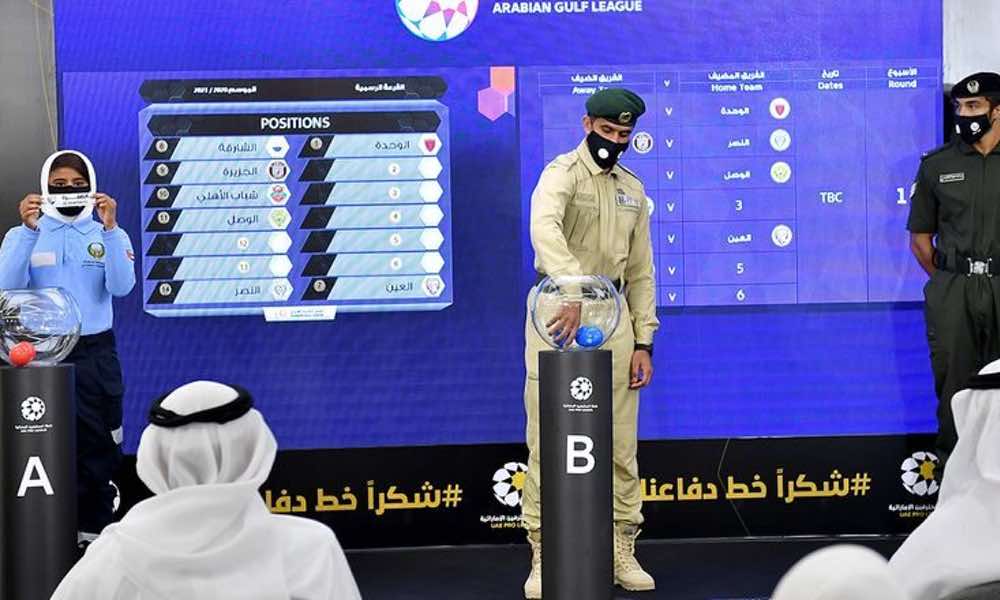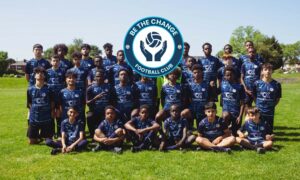July 18 2020 set the ball rolling on a sombre yet optimistic start to the Emirati football season. As coronavirus conditions slowly relax in Dubai, the Arabian Pro League Committee (PLC) hosted an Arabian Cup draw in the Ministry of Health and Prevention. The committee, while maintaining a future-focussed policy approach, made sure to honour the ongoing role of key workers in the nation.
In a speech to the event’s many virtual and physical attendees, Abdulla Naser Al Junaibi, Chairman of the UAE Pro League, thanked the government, as well as medical workers for their fortitude during the pandemic. The event even ran under the slogan “thankyou, our first line of defence”. The thanks extended from words to actions, as the committee selected key health and social workers to draw the Arabian Gulf Cup fixtures themselves.
Yaqoub Ahli from the Ministry of Interior, Dr. Abdullah Musa Al Balooshi and nurse Muna Ibrahim Al Hosani from the Ministry of Health and Prevention and Marwa Al Amoodi from National Ambulance all drew fixtures for the upcoming cup, demonstrating the many ways in which health and safety facilitate sport. Such figures deserve acknowledgement as the UAE’s decisive action during the pandemic saved countless lives. As of July 3, only 316 deaths occurred in the country. While tragic, this figure ranks among the lowest in the continent.
The “first line of defence” between the pandemic and the public allows competitions like the Arabian Gulf Cup to go ahead. Beginning in 2008, the Cup boasts fierce competition despite its relative youth. Even the most successful team in the Arabian Gulf Cup’s history, Shabab Al-Ahli, only have four titles.
Over the 12 years of its existence, seven different teams claimed the Cup, showing just how tight the margins are in the Emirati top flight. Reigning champions Al-Nasr denied Al-Ahli a fifth title in the 2019-20 season, and will hope for a strong start following their newest draw.
Al-Nasr look set to face the victor of the upcoming clash between Ajman and Fujairah. Meanwhile, the dominant Al-Ahli acquired a cup fixture with Al-Dhafra, amid the latter squad’s licensing controversy.
Emirati competitions resume several months after their European counterparts for a variety of regional reasons. Firstly, the coronavirus pandemic took root throughout Europe faster than it did in the Middle East. This results in de-synchronised recovery schedules. Secondly, the extreme summer climate exacerbated safety concerns in the Emirates. These factors, among others, mean that while the Coupe de France and FA Cup wrap up on July 24 and 26 respectively, Emirati football fans still have a lot to look forward to.
The UAE’s top football flight hosts a set of diverse teams, who often rely on international travel. As travel restrictions transition to the new normal, so does the Arabian Gulf Cup. In the Emirati domestic competitions, it’s all to play for.
















